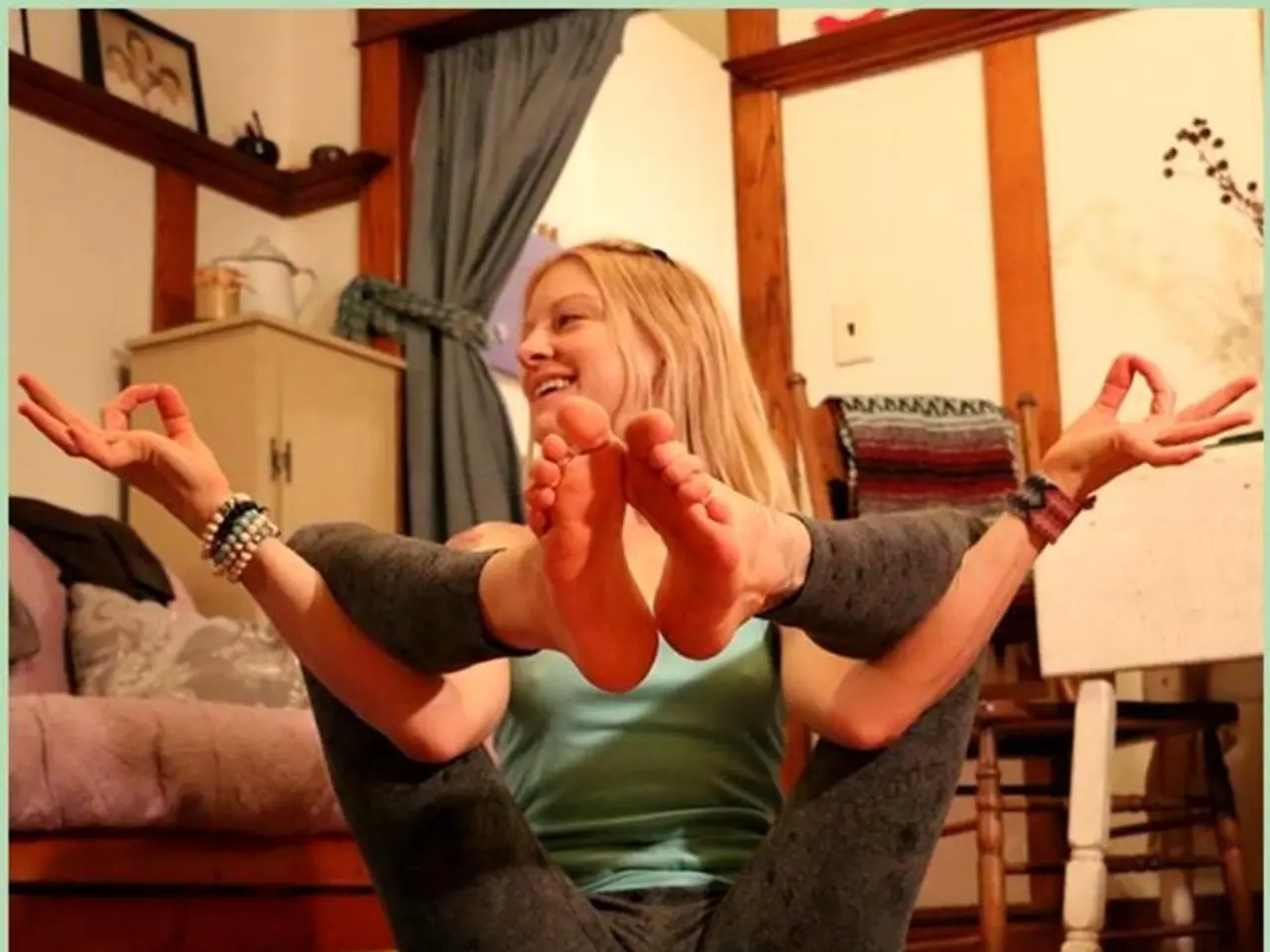Quick 20-minute comprehensive exercise routine designed to boost physical strength and foster relaxation, perfect for pre-sleep conditioning
New research suggests that the impact of evening exercise on sleep quality in healthy adults can be both positive and negative, depending on factors such as timing, intensity, and type of exercise.
Positive Effects
Several studies have shown that evening exercise can have a beneficial effect on sleep quality. For instance, the Journal of Sports Sciences published a study indicating that performing exercise in the late afternoon can promote a natural decrease in body temperature before bedtime, which in turn can improve sleep quality [1].
Another study published in the European Journal of Applied Physiology found that while pre-sleep exercise can cause large physiological excitement, it does not necessarily lead to long-term disruptions in sleep onset [5].
Moreover, activities like yoga, with its controlled breathing, can activate the parasympathetic nervous system, promoting relaxation and potentially improving sleep [3]. This relaxation can help reduce anxiety and stress, further contributing to better sleep [4].
Negative Effects
On the flip side, intensive exercise close to bedtime can increase core body temperature and arousal levels, potentially delaying sleep onset due to the time it takes for the body to cool down [1][5]. It is generally advised to avoid vigorous exercise within one to two hours of bedtime to allow for sufficient recovery time and to prevent disruptions to sleep [1][5].
Optimal Timing
Completing moderate to vigorous exercise at least 3 to 4 hours before bedtime is recommended to allow physiological responses (like increased body temperature) to return to baseline levels conducive to sleep [1][2][4].
Conclusion
While evening exercise can benefit sleep quality when timed appropriately, it requires careful consideration of exercise intensity and timing relative to bedtime. A systematic review and meta-analysis conducted by Sports Medicine on the effects of evening exercise on sleep in healthy participants found no significant negative impact on sleep quality [2].
However, it's important to note that consuming caffeine, especially in the hours leading up to bedtime, can significantly disrupt sleep quality and increase the risk of sleep disorders [6]. Additionally, maintaining a consistent sleep schedule, even on weekends, can help improve sleep quality and regulate circadian rhythms [7].
Furthermore, bright light therapy, particularly in the evening, can help regulate circadian rhythms and improve sleep quality in shift workers [8]. Engaging in mindfulness-based stress reduction techniques before bedtime can also improve sleep quality in individuals with sleep disorders [9].
In conclusion, a balanced approach to evening exercise, considering its timing, intensity, and type, can lead to improved sleep quality in healthy adults.
[1] The Journal of Sports Sciences [2] Sports Medicine [3] European Journal of Applied Physiology [4] Cureus [5] Sleep Medicine Reviews [6] Journal of Clinical Sleep Medicine [7] Cureus [8] Journal of Clinical Sleep Medicine [9] Journal of Sleep Research
- Engaging in light to moderate evening exercise, particularly activities like yoga that promote relaxation, can activate the parasympathetic nervous system and aid in sleep quality improvement by reducing anxiety and stress.
- It's essential to avoid intense exercise close to bedtime, as it can increase core body temperature and arousal levels, potentially leading to delayed sleep onset and disruptions due to the time it takes for the body to cool down.




